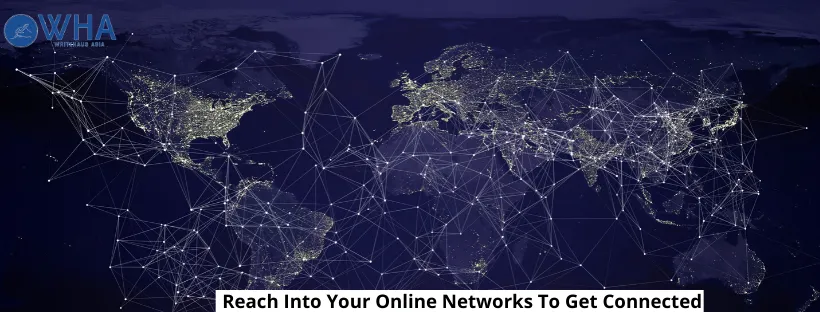How job seekers can manage job search expectations during the global pandemic, and what can be done to improve prospects in the meantime.
The COVID-19 pandemic has created a lot of uncertainty in the job market. Restrictions imposed on travelling, trade and business coupled with the work from home arrangement has pushed companies to re-assess their operations. As a result, companies have become conservative and risk-averse in their work and hiring strategy, leading to redundancies, furloughed workforce and hiring freezes.
Depending on the industry, companies have had to work out their work processes, their communication to clients, their customer/client service experience, their new budget and planning processes and adaptations to products and services to ensure that they work throughout lockdown. To operate during these difficult times, companies will need to do extra work to flag the risks – this will require re-forecasting demand, identifying disruptions, navigating risks to employees and customers, and mitigating their crisis management and intervention strategies.
For companies to ensure a transition into a new normal, they would require people with expertise that can help them achieve digital excellence, safe and contactless engagement with their customers and those who can help derive insights through valuable data. In addition to this, candidates must be adaptable to the work from home arrangement.
Job seekers must be conscious of these factors and level up to the requirements of companies during this period. With ample time at home, job seekers should be asking themselves what skills they have to offer and how these will be valuable to the companies they are applying to?
Fortunately, there is value in the lockdown arrangement because job seekers can use this time to take stock of their skills, offerings and opportunities. If used correctly, job seekers have the opportunity to leverage the time to equip themselves with the information and professional skills to gain confidence and clarity in themselves and their job searching process. This will help by producing a focused job searching strategy providing clarity and confidence along the way. Although it is difficult to envision what the economy or the job market will look like at the end of the year, it is possible to manage our actions and behaviours to increase our chances of getting hired.
Stay Focused – Be Clear on What You Have to Offer
As a job seeker, you should be taking stock of your professional experiences, what you have gained from them and what you can offer as a result. Understanding your skill-sets and sector experience from previous professional experiences will help gain clarity on what you have to offer to your next role in your future company. Doing this helps you can gain an understanding of job roles within your reach and those that are just out of your reach.
There are several questions you can ask yourself that will help take stock of your value to a company. Why are you applying to this role specifically, and what value can you bring to the role and the team during this time of need? How does your previous experience relate to the job, and how will it ensure your success in this role? Where can you fit to fill the current gaps? Focusing on these questions will help answer the hiring manager’s question of ‘Why you?’. If it is helpful, list these on paper so that you can see visualise what they are to gain clarity.
The critical takeaway here is that you are clear on your skill-sets and value — this will help with narrowing your job search and ultimately impress and convince a hiring manager to hire you in an interview.

Stay Realistic – Adjust Your Timelines and Your Expectations
Timelines are useful for job seekers because schedules can help us create a vision and help with setting expectations during this uncertain period. You may have to adjust your timeline accordingly because it will take longer to find a job, as fewer jobs will be available in the job market. To respond to this, job seekers need to be flexible in the roles they take on. It is essential to consider roles linked to previous jobs or roles that are in the same vein as the one that is being aimed for.
For example, if you are a marketer and you can’t find a job during this time – perhaps consider taking on a sales job or a market research job. Both are in a similar vein to marketing. Taking on these roles may also boost qualities that are needed for a marketing position. Similarly, if you are a business development professional – consider taking on a sales role or a business analyst role. Gaining experience in another role will not decrease your chances of eventually working in the position you want. This strategy also applies to those hoping to make sector changes. Consider applying to roles in sectors that you are familiar with, before applying to sectors that you are not familiar in but want to move into.
By adjusting your expectations, you can gain a focused and clear understanding of what you can achieve during this period of risk and uncertainty and the amount of time it will take you to get there. If you are unsure about the roles you are aiming for, make sure to discuss your plan with your mentors, family, friends or ex-colleagues. It is helpful to gain perspective on what is realistic during periods of uncertainty.

Stay Valuable- Get in the Game, Up your Skill Game
The pandemic is giving us time. We have more time to be intentional about everything that we do in our day to day – whether it is eating, exercise, sleep. Do the same with your professional toolkit. Have a look at the roles that you would like to land. What can you offer in these roles, and what are you lacking? What online courses can you take that will increase your chances of being employed in the role that you want? An excellent place to start is to list the skills that you have on your CV. And then consider which skill-sets you could gain to increase your chances of getting a job in the industry you want.
If you are building a career in media, take courses that will increase your chances of landing a job in this field. These could relate to social media, digital media, writing or journalism. Ultimately, you should be focusing on gaining skills that relate to communication in the media field. If business management is your goal – you may consider taking courses that will improve your business knowledge or management skills. These could be courses in project management, financial management or business strategy.
The other benefit of doing this is creating structure in your week. You can build online courses into your morning or afternoon routine to help with your productivity levels. You can do multiple courses if you have the savings for it. Consider this a period for professional development. Useful websites for online courses include Coursera and Udemy. Courses on these platforms are quite reasonable, and provide discount prices during the pandemic.

Stay Open- Minded – Consider the Value in Volunteering
Volunteering can be valuable. Yes, volunteering is sometimes controversial because of the argument — but there are many hidden benefits if you find a good opportunity.
If you aren’t able to afford an online course but are dying to get some skills in fundraising, communications or other practices, it could be worthwhile to consider volunteering for non-profit organisations. A quick Google search for remote volunteering opportunities in Singapore can be helpful.
Her World provides a list of volunteering opportunities available in Singapore. These organisations work in mental health, women’s issues, Alzheimer’s disease, unplanned teen pregnancies and more. More often than not, organisations offer remote volunteering opportunities – for example, the Association of Women for Action and Research is one of them.
SG Cares lists volunteering opportunities and a filtering process that allows you to filter through cause and skill- set. In addition to this, Expat Giving contains some online virtual volunteering opportunities for professionals.
If you are struggling to find the right opportunities for your skill-set in Singapore based organisations, also consider organisations overseas. Some professional sites list great opportunities abroad, particularly in remote online volunteering. The UK based Reach Volunteering is one of these. We live in a digital world and volunteering remotely for an organisation overseas versus your own country should be very manageable – you will just need to consider the time differences.
This leads us to the second benefit of volunteering. Some industries, such as the non-profit or entertainment industry, are challenging to break into, and volunteering your time may be a good way to show your interest or gather contacts to expand your network within that industry.

Stay Connected – Reach Into Your Online Networks
As a job seeker, you need to leverage your professional networks. Reach into your professional and familial networks to get the word out that you are looking for opportunities. Reach out to ex-colleagues, expert mentors and family friends. By doing this, you are placing your needs on their radar, giving you a better chance of knowing about opportunities you may not have come across otherwise. People in your network may have an idea of which direction to point you in, of people to connect with or of roles or organisations that suit your job search criteria.
As an alternative, consider sending out a professional email to professionals who are working in the role you see yourself in. Leveraging your LinkedIn profile is an excellent way of doing this. LinkedIn is an incredibly resourceful tool for job-seekers because you can look at the work history of other professionals, as well as see if you have connections with professionals in your chosen interest area. The worst that can happen is no reply, so there isn’t anything to lose in putting yourself out there.
You should be getting comfortable with this process as networking events may not be happening any time soon, therefore, making the most of connections online will be the best way to network, and also to hear about virtual networking events.

Stay Social – Update your Online Presence
This point follows nicely from the last point. If you are actively applying to jobs, you should be proactively connecting with professionals in your field; therefore, your online presence should reflect what you aim to convey in a job interview. As your professional networking platform, LinkedIn should be the first platform that you update. It is the traditional platform that hiring managers use to look up candidates and the first point of contact between you and a hiring manager.
With this in mind, make sure that you update your LinkedIn profile so that your professional branding, narrative and career mission statement are well communicated for hiring managers to see. Summarise your previous experience and your current job-seeking goals in your bio, and update your career and educational accomplishments. Something like — ‘Curious and enthusiastic Communications professional with four years of experience in the cosmetics sector looking for marketing opportunities in the non-profit sector’ is an effective and straightforward way of conveying your professional experience, skill-set and career goal in your bio.
Make sure to earmark the skills you have gained from previous jobs on your LinkedIn profile because these filter through into your online LinkedIn applications and could help determine whether you are shortlisted for an interview. Consider reaching out to ex-colleagues for testimonials which can provide an insight into your character and are great ways to capture the attention of hiring managers. Lastly, a LinkedIn profile provides a snapshot of the network that a person possesses, and this could set you apart from other candidates, therefore, should not be underestimated.

Stay flexible – Consider Alternative or Temporary Opportunities
During these difficult times, perhaps consider developing a side job or getting into freelance work to supplement your living costs. The freelance industry can appear daunting at first because it is similar to running your own business. But once you have your mind wrapped around navigating freelance job websites and contacting clients, building a portfolio and managing your own time and your income generation according to your terms, it can be an advantageous option too.
Consider whether you have transferable skills that could be applied in a freelance setting. Maybe you can tap into your writing skills, teaching skills or old graphic design skills? There are many projects out there that need freelance resources for the short term. If not a long-term goal, freelance work can at least bring in some pocket money to help ease unemployment and keep you busy.
The freelance industry is vast and there are many websites to look into. UpWork is a reliable website for freelancers looking for work. Going through these websites is also helpful to learn about how you can price your services. Aspirant SG lists several job sites that show work for freelancers looking to collaborate with clients in Singapore too.

Stay Patient – Progress Could be Slow –Be Patient and Kind to Yourself
Job searching during this period is not like job searching pre-COVID-19. Because there are fewer jobs available on the job market, finding a job will take longer. Try to remember this when you are feeling down about how long it is taking to find a job. Remember that you cannot speed up the process, and instead, focus on the things you can control, such as your thoughts, behaviours and your actions.
We hope this article helps you structure your time and your thinking when approaching the job hunt. But remember to take time out to do activities that you enjoy too!
About WriteHaus Asia
WriteHaus Asia is a Singapore based branding and content agency. Founded in 2016, we believe in accelerating brands through content, video/photography, digital media and branding.
For more information on what we do, please call us at (+65) 8100-7064 or (+65) 9488-2725. Alternatively you may also drop us an email with your queries at hello@writehausasia.com.












